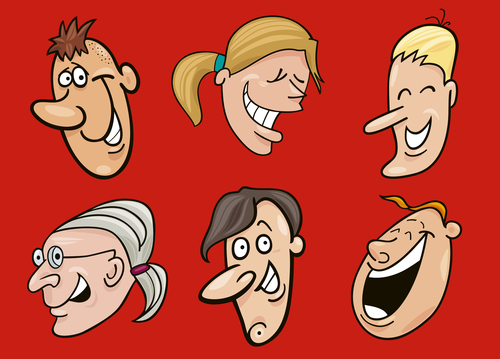
We usually don’t use the words humor and caregiving in the same sentence. One could easily argue that caregiving is not very funny. However, humor can be a secret and wonderful coping mechanism to rely on at times when laughter does not seem like an option.
I was my father’s caregiver and I became concerned because he seemed to be getting more confused. I noticed his balance and memory seemed off. I took him to the doctor. The doctor asked him to remove his shirt and I noticed a watch by his elbow and another watch on his wrist.
I asked him why he was wearing 2 watches. He looked down and started to laugh. “I have been looking for that watch for 2 weeks,” he told me. This doctor visit was worth it already. The doctor and I had a good laugh even though we were both worried. The doctor told me to go to the emergency room right away. An MRI performed a few hours later revealed my dad had a brain hemorrhage. He was treated and made a good recovery. I relived that moment during this health crisis with my father. I have to say his joyful reaction to finding his missing watch still makes me smile.
The healing and therapeutic aspects of laughter have been talked about for many years. Here are some of the reasons it is such a powerful tool for caregivers:
Tension Relief: It can relieve tension in a moment of high anxiety and stress. This can be true for both the caregiver and the person you are taking care of.
Offers Comfort: If you are caring for someone who is anxious or combative laughter can alleviate those symptoms. Humor can let them know that you are OK and send the person you are caring for the message that they will be OK for the moment too. It can reassure them.
Lightens the Mood-There are definitely moments as caregivers where we feel angry, frustrated, or just feel like crying. Watching a funny TV show, movie, or reading or telling a funny story with someone else can make you both smile. This can create a meaningful bond between you as a caregiver and the person you are caring for.
Great Distraction-Humor can be a good distraction from a somber or aggressive moment or act. It can distract someone who is being verbally or physically aggressive. It can also create distance from that moment and cause you to momentarily forget about your frustration or anger.
Laughter and humor can be an effective tool when interacting with people who have some type of dementia or memory loss. It can put them at ease and help them to view you in a more positive way. Joking with someone who has put on a shirt backward rather than chastising them can offer positive results. It enhances their trust in you as a caregiver and helps them perceive that you are there to offer support and comfort.
Sometimes responding to the person you are caring for in a humorous, not sarcastic way, can be helpful for all parties. Wearing a funny hat, or a funny shirt can elicit an unexpected smile.
These moments of relaxation and laughter can recharge you as a caregiver and help the person you are taking care of take a breath and relax. We have been told “laughter is the best medicine” and that can be true in your role as a caregiver.
LEARN TO LOVE YOUR LIFE AGAIN
 Do you feel like you need to hit the REFRESH button on your life? Download our free guide and begin to create your best life yet!
Do you feel like you need to hit the REFRESH button on your life? Download our free guide and begin to create your best life yet!



Great advice to choose laughter over anger or fear. It can prepare you for the next drawback.
Thank you for your comment Peggy. I appreciate you taking the time to write it. I agree laughter can be more powerful than anger or fear as a tool for caregivers. Happy Holidays to you and your family.